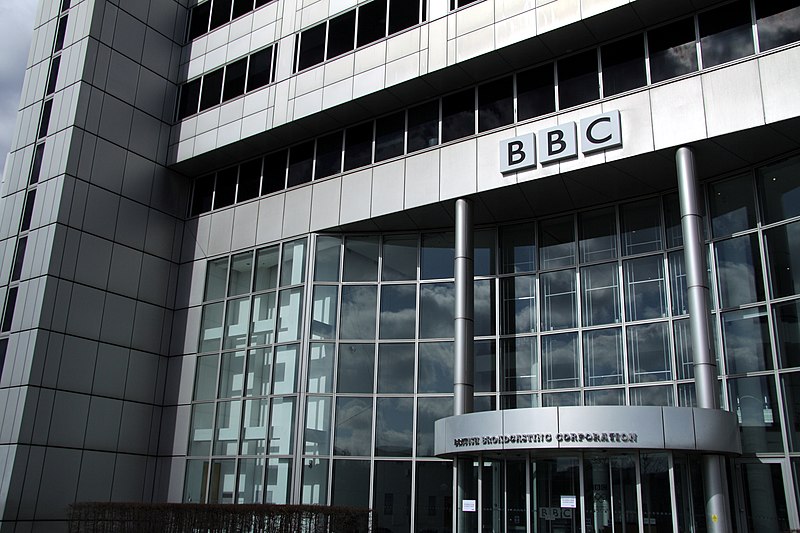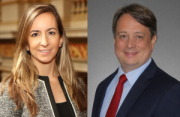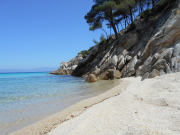
The BBC has apologised to US President Donald Trump after a Panorama episode stitched together parts of his 6 January 2021 speech in a way that could imply he was directly calling for
violence. The broadcaster said the edit created a “mistaken impression” and confirmed the 2024 programme will not be shown again.
However, the corporation has refused Trump’s demand for compensation, despite his legal team threatening a $1bn (£759m) lawsuit unless the BBC issues a retraction, apology, and financial settlement.
Government reacts
Culture Secretary Lisa Nandy said she believes the BBC is treating the issue with the seriousness it deserves. But she also criticised the organisation’s editorial standards, saying some guidelines were “not robust enough” or were applied inconsistently.
She added that high-level roles at the BBC should be filled by people with firm journalistic backgrounds — comments made after questions about board member Sir Robbie Gibb’s involvement, a former adviser to Theresa May. Nandy said such political appointments have “damaged confidence and trust” in the BBC’s impartiality.
Liberal Democrat leader Sir Ed Davey even urged the prime minister to call Trump directly and help fend off the lawsuit to defend the BBC’s independence.
The fallout has already led to the resignations of BBC director general Tim Davie and head of news Deborah Turness.
What the BBC says
The controversy resurfaced when the Daily Telegraph uncovered a second, similarly edited clip — this one aired on Newsnight in 2022.
In a statement posted in its Corrections and Clarifications section, the BBC acknowledged that the Panorama edit wrongly made Trump’s speech appear as a continuous clip rather than separate excerpts.
BBC chair Samir Shah also sent a personal letter to the White House apologising “for the edit of the president’s speech on 6 January 2021”.
But while the BBC expressed regret, it insists it did not defame Trump. According to the corporation, there is “no basis” for a legal claim.
The BBC’s legal arguments
In its reply to Trump’s lawyers, the BBC outlined five reasons it believes the lawsuit has no merit:
- The programme wasn’t aired in the US, and the BBC didn’t have rights to broadcast it there.
- There was no harm, they argue, as Trump was re-elected shortly after.
- The edit wasn’t malicious — it was meant to shorten a long speech.
- The clip was part of a much larger programme that included voices supportive of Trump.
- Political speech is highly protected under US defamation law.
Internally, BBC insiders say the organisation is confident in its legal position.
What actually happened in Trump’s speech?
In reality, Trump delivered the two now-joined lines over 50 minutes apart:
Early in the speech: “We’re going to walk down to the Capitol, and we’re going to cheer on our brave senators and congressmen and women.”
Much later: “And we fight. We fight like hell.”
Panorama presented it instead as: “We’re going to walk down to the Capitol… and I’ll be there with you. And we fight. We fight like hell.”
Trump told Fox News the edit “butchered” his words and “defrauded” viewers.
Another problematic edit emerges
The Telegraph also revealed a Newsnight edit from 2022 that placed the “fight like hell” line directly after Trump's call to walk to the Capitol. This was followed by presenter Kirsty Wark’s voiceover saying, “and fight they did,” over footage of the Capitol riot.
Former White House chief of staff Mick Mulvaney, appearing on Newsnight at the time, called out the edit live on air, saying it had “spliced together” different parts of the speech.
The BBC said on Thursday that it is reviewing this clip as well.
Meanwhile, Trump’s legal team told the Telegraph that there is now a clear “pattern of defamation” by the BBC.
How it all started
Concerns about Panorama’s documentary first surfaced after the Telegraph published a leaked memo written by a former adviser to the BBC’s editorial standards committee. The memo also criticised the corporation’s coverage of transgender issues and BBC Arabic’s reporting on the Israel-Gaza conflict. Photo by Chmee2, Wikimedia commons.







































